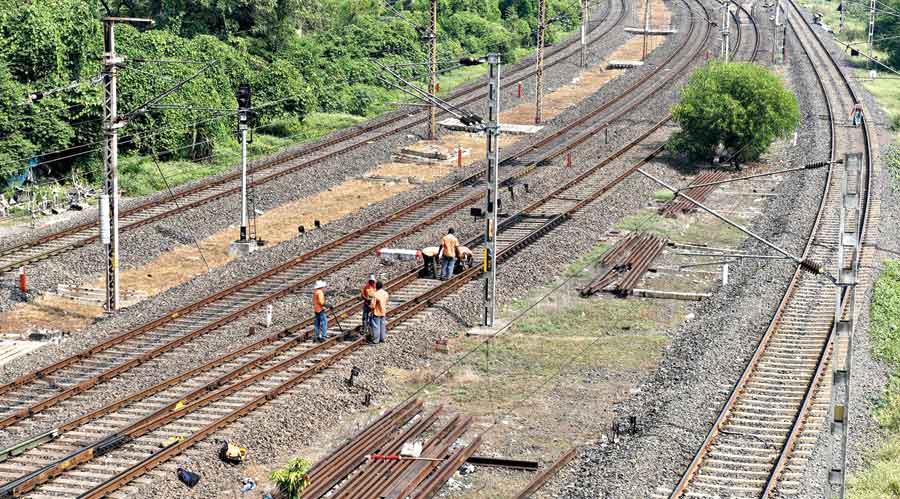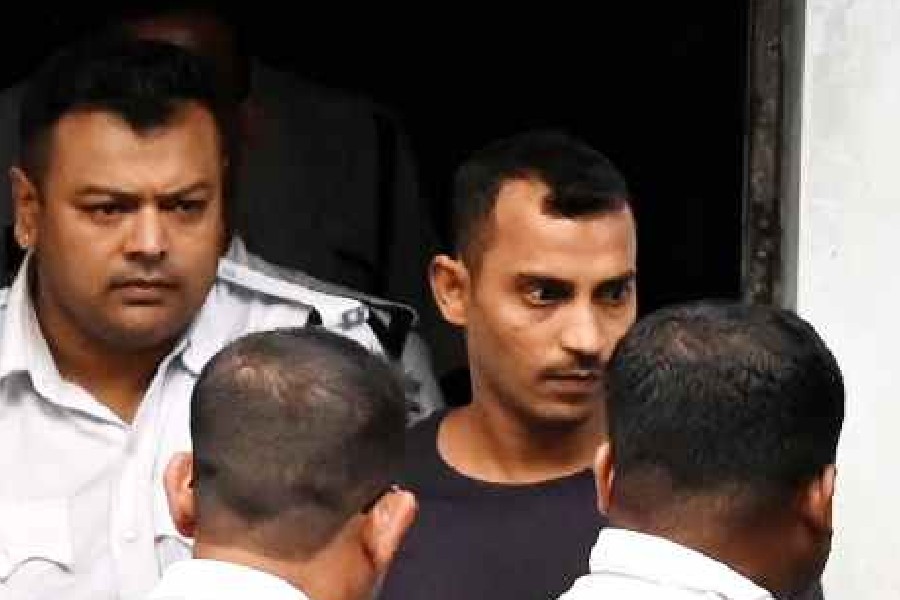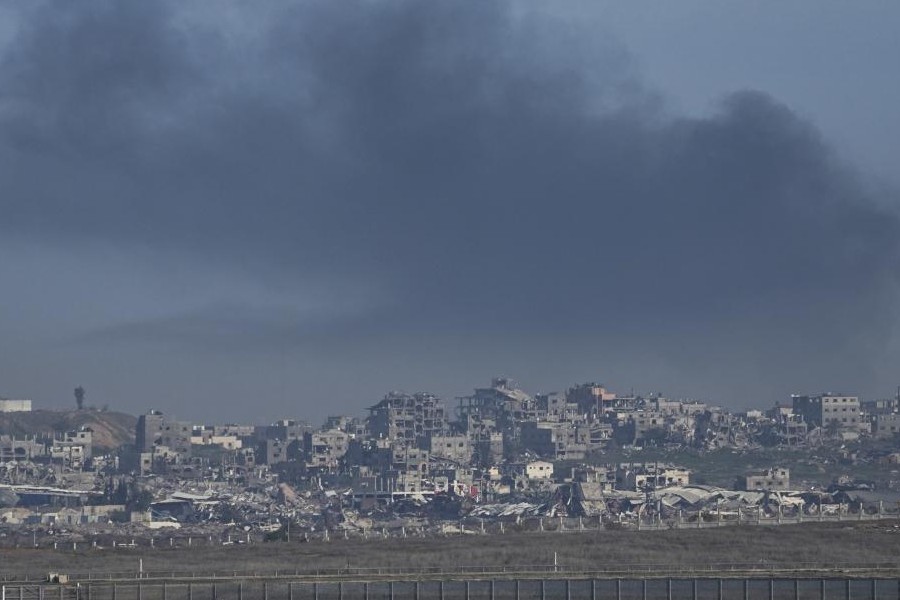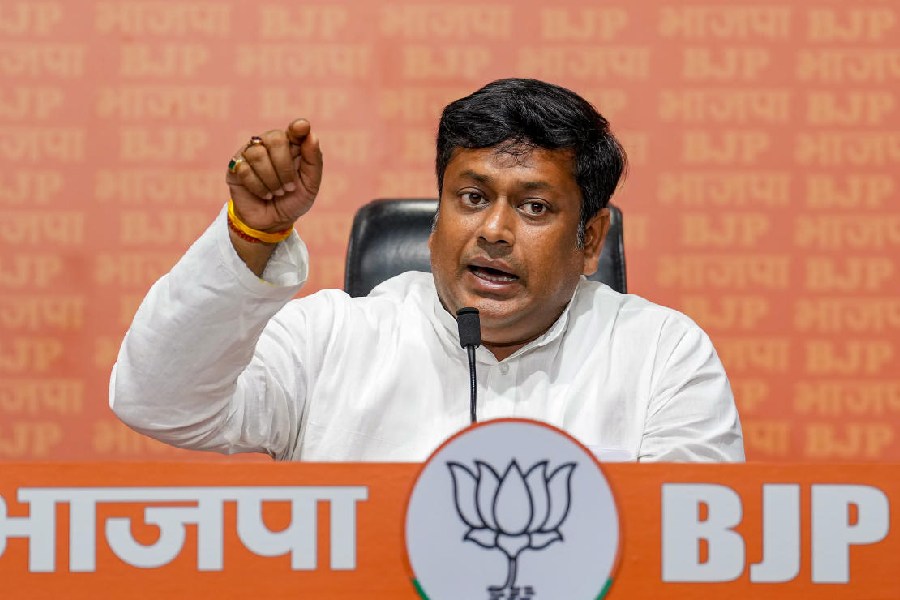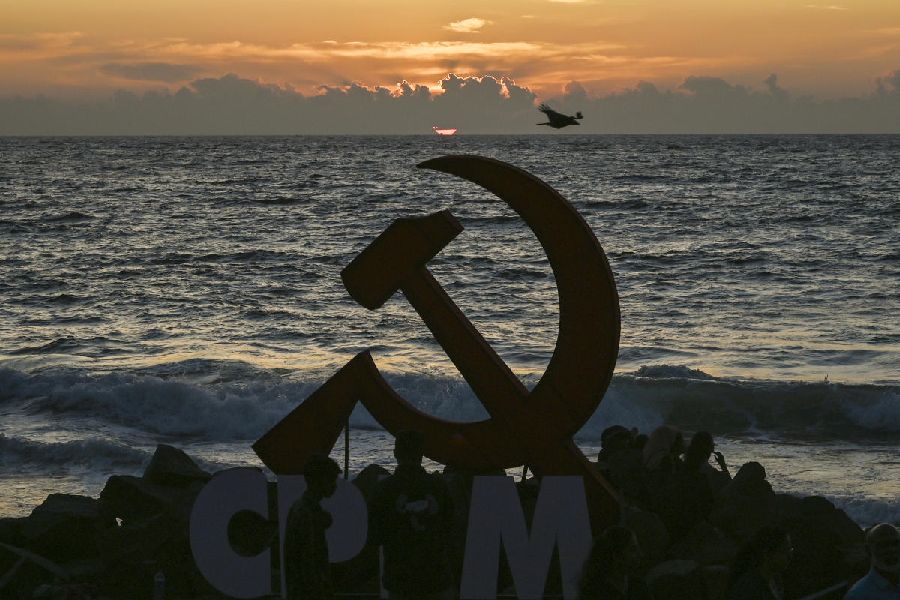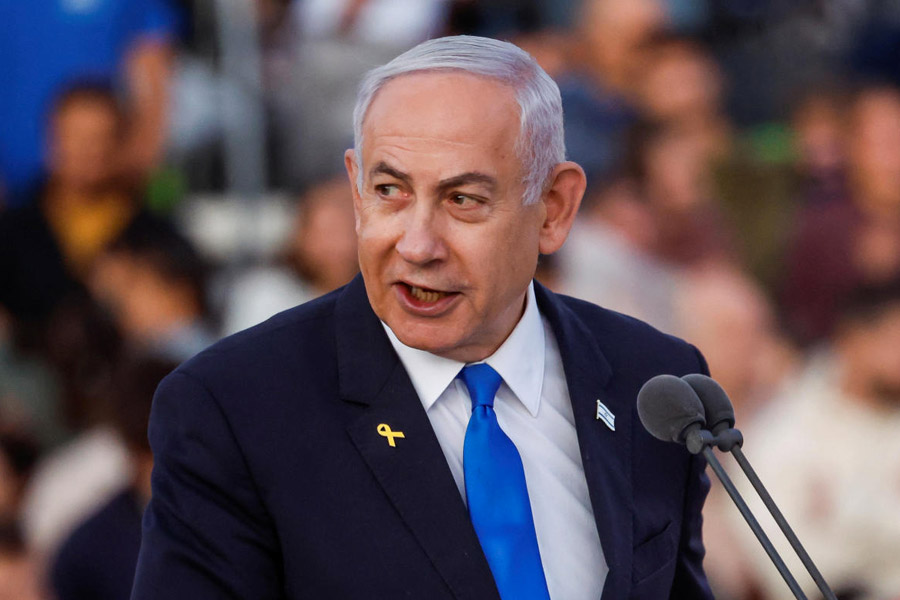Fewer trains will mean more people, both on the platform and on the trains, risking a surge in the spread of Covid-19, doctors have warned.
Close to 180 pairs of local trains are expected to run from November 11, across the Howrah, Sealdah and Kharagpur divisions, rail officials had said after a meeting with the state government representatives on Wednesday.
Before the services were grounded on March 23, close to 1,500 local trains ran every day, carrying more than 3.5 million passengers.
Most suburban train passengers are daily travellers who use the trains to go to work and return home. Barring schools and colleges, most offices and other business establishments are open.
Local trains, though infamous for being overcrowded, are the fastest option to travel from the suburbs to the city. So, once services resume, it is likely that passenger volume will not be reduced significantly.
The number of trains will be increased in a phased manner in keeping with the passenger count, multiple rail officials have said. Doctors have said even a few days of overcrowded stations and trains could be enough to trigger a surge in infections.
“Very surprising, very scatterbrained kind of response to the situation,” cardiac surgeon Kunal Sarkar said while speaking about the “conversation going on about local trains”.
In a message posted on YouTube a few days ago, following the meeting between rail and state government officials where it was decided services would resume with “10-15 per cent” of the usual fleet, Sarkar spoke of the recent “tremendous chaos” when people tried to board trains that were ferrying rail personnel.
A series of confrontations between people desperate to board special trains meant for rail staff and the RPF prompted the state government to ask the railways to resume suburban train services.
“They just want to reach the city for a living… daily wage earners, hawkers, daily labourers…. People have been in a sort of semi-starvation for seven months…. Our response to this problem cannot be ‘look, we are going to operate only 10 per cent of the trains in selected stations’,” Sarkar said.
“The chaos, the rush, the pandemonium from one station will now be multiplied into crowds of people gathering at each and every station. So, forget about the escalation of infection… we will risk probably 100 times more escalation because there will be crowds of unmanageable people gathering at every station,” he said.
“The logical response to this problem is not reducing the capacity but increasing it. We need to use the trains better, deploy more train drivers.”
Pulmonologist Ajoy Krishna Sarkar said local train services “should either be totally suspended or the full fleet should be run”.
“A limited number of trains will automatically result in more passengers on each train. How many cops will be deployed in each compartment? There will be no semblance of distancing in the compartments. It is unfair to blame passengers because they are struggling for their livelihoods,” he said. “The natural effect will be a rise in the number of Covid-19 infections.”
Several rail officials had spoken of the Mumbai model. In Mumbai, suburban train services have resumed for essential service providers identified by the state government.
In Bengal, local trains will run for all passengers. That will make crowd control practically impossible, rail officials said. “We can stop a person without a mask but we cannot stop a person with a ticket,” an official of Eastern Railway’s Sealdah division said.
The chief secretary has hinted that the government was not in favour of introducing an e-pass system for local trains similar to the one implemented by Metro Railway in Calcutta.
Access control at suburban stations is going to be the key problem once services resume. The railways is dependent on the state government for crowd control on platforms as it does not have enough people to deploy at every station.
“The government does not want to be exclusionary.... If an e-pass system is introduced it may leave many people in the suburbs and rural areas in trouble,” the chief secretary had said on Monday.
Metro trains
Metro Railway will increase the number of daily trains from 152 to 190 from November 11. The move is to tackle an expected rise in the number of passengers because of resumption of local trains, also slated from November 11. “There will be 190 trains from Monday to Saturday. On Sunday, there will be 64 trains as usual,” a Metro official said.

